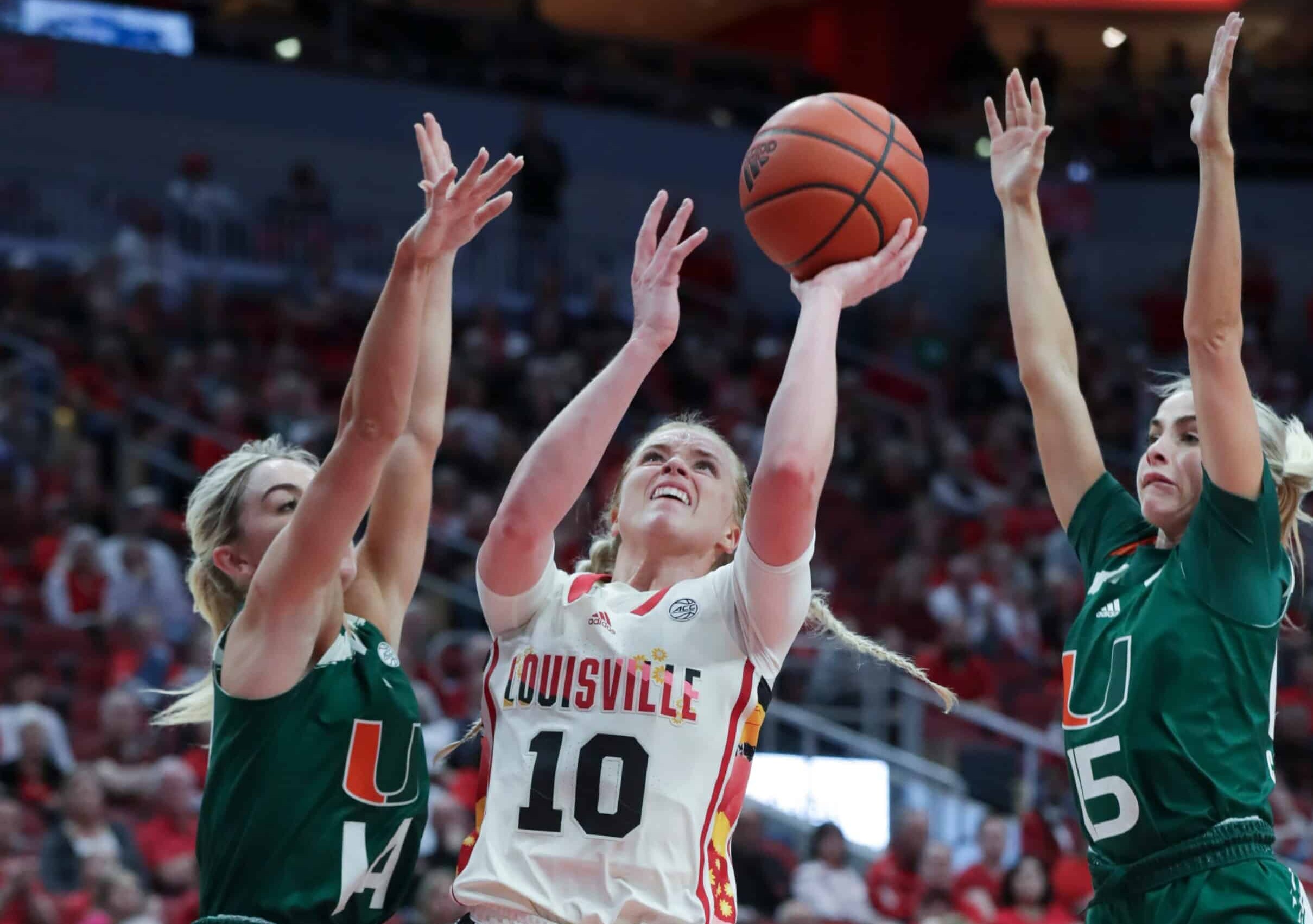The NCAA has handed down a ruling in the first infractions case it has adjudicated related to the current name, image, and likeness era — the University of Miami women’s basketball team.
Women’s basketball coach Katie Meier was sanctioned because Meier “facilitated” a meeting between a booster and prospective athletes, the NCAA said — confirmed by Sports Illustrated to be John Ruiz and top NIL earners Haley and Hanna Cavinder.
Ruiz also had contact with the athletes before they agreed to attend Miami and gave them what the NCAA still considers to be an impermissible benefit: a free dinner.
Meier has served a three-game suspension for this action.
The NCAA found no direct evidence of NIL-related severe inducements. Meier never asked Ruiz to offer athletes a deal. The NCAA reported that Ruiz and the Cavinder twins were not discussed. The NCAA decided to sanction the school.
As part of a negotiated resolution process, the punishments were relatively minor, but the NCAA warned that they shouldn’t be considered a precedent for future cases.
- They included a $5,000 fine and a women’s basketball budget reduction.
- The team will also serve a one-year probation.
- The Cavinder twins were not punished, and Ruiz was not asked to “disassociate” from the program.
Given that the sanctions were part of a negotiation, the NCAA claims they should not be considered “precedent” for future cases — in other words, boosters should still fear the governing body asking them to dissociate from programs.
In an interview with Front Office Sports last year, the Cavinder twins said NIL opportunities were not a factor in their decision to transfer from Fresno State to Miami.
In a statement provided to Front Office Sports, Meier called the violation an “inadvertent mistake” made before the NCAA even clarified how boosters can factor into NIL deals — which wasn’t released until a month later, in May.
While Miami acknowledged responsibility in a separate statement, it added: “The University encourages the membership to review NCAA bylaws that have been on the books for decades and may no longer be applicable or realistic in today’s environment. The sanctions that we ultimately agreed to, to bring this to a close, are not commensurate with the violation or its intent.”
The infraction clues how the NCAA could handle the future of NIL cases.
The governing body is interested in going after the loudest potential perpetrators — it’s likely no accident that the first case centered around a school, booster, and athletes who have made dozens of NIL headlines over the past 18 months. It also suggests that the “negotiated” type of infraction could be a way to keep the NCAA from getting sued.






![[Subscription Customers Only] Jun 15, 2025; Seattle, Washington, USA; Botafogo owner John Textor inside the stadium before the match during a group stage match of the 2025 FIFA Club World Cup at Lumen Field.](https://frontofficesports.com/wp-content/uploads/2026/02/USATSI_26465842_168416386_lowres-scaled.jpg?quality=100&w=1024)
![[Subscription Customers Only] Jul 13, 2025; East Rutherford, New Jersey, USA; Chelsea FC midfielder Cole Palmer (10) celebrates winning the final of the 2025 FIFA Club World Cup at MetLife Stadium](https://frontofficesports.com/wp-content/uploads/2026/02/USATSI_26636703-scaled-e1770932227605.jpg?quality=100&w=1024)









